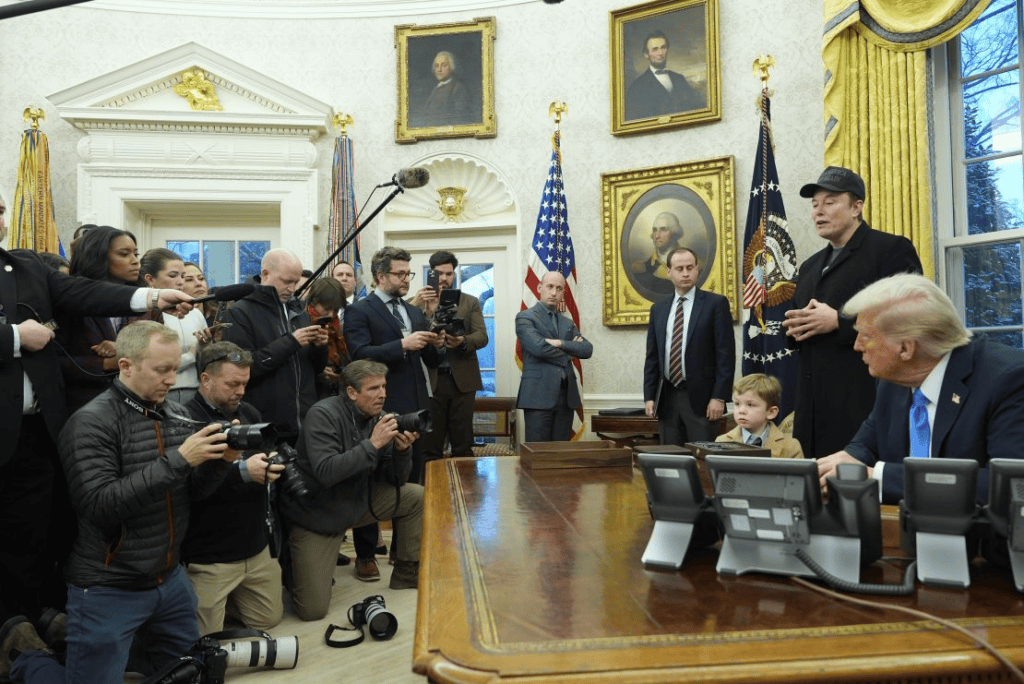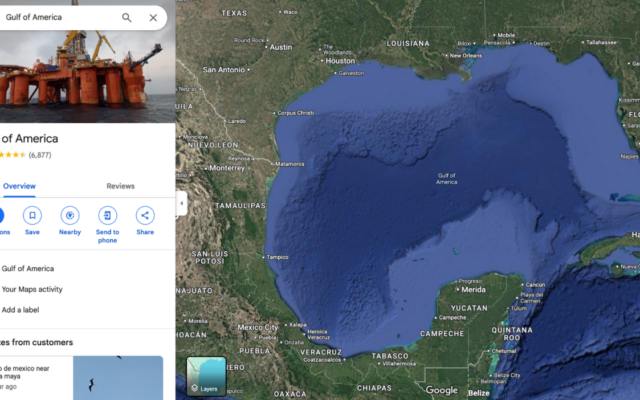The White House has barred Associated Press (AP) reporters from presidential events for multiple days in response to the organization’s refusal to adopt President Donald Trump’s executive order renaming the Gulf of Mexico as the “Gulf of America.” The move has sparked a constitutional debate over press freedoms, as advocates warn of a dangerous escalation in government retaliation against independent journalism.

Standoff Over Language
The dispute began on Tuesday when the White House informed the AP that it would be denied access to Oval Office events unless it conformed to Trump’s order renaming the Gulf of Mexico. When the AP refused, citing its commitment to global journalistic standards, its reporters were barred from two events that day, including an executive order signing. The pattern continued on Wednesday and Thursday, when AP journalists were again blocked from key White House functions, including the swearing-in of Health and Human Services Secretary Robert F. Kennedy Jr. and a joint press conference between Trump and Indian Prime Minister Narendra Modi.
AP Executive Editor Julie Pace condemned the administration’s actions, calling them “plainly intended to punish the AP for the content of its speech” and a clear violation of the First Amendment. The AP’s style guide, followed by thousands of news organizations, maintains that it will continue using “Gulf of Mexico” while acknowledging Trump’s directive. The agency defended its approach as necessary to ensure clarity for international audiences, given that the name change only carries authority within the United States.

Press Freedom Advocates Sound Alarm
The decision to bar AP reporters has drawn sharp criticism from press freedom organizations, legal experts, and fellow news outlets. The White House Correspondents’ Association labeled the ban “unacceptable,” warning that it sets a dangerous precedent for retaliatory action against media organizations that do not conform to government-imposed narratives.
“Punishing journalists for not adopting state-mandated terminology is an alarming attack on press freedom,” the Foundation for Individual Rights and Expression (FIRE) said in a statement. “That’s viewpoint discrimination, and it’s unconstitutional” (Quote taken from CBS News Report, 2025).
Similar concerns were raised by the Inter American Press Association, which characterized the White House’s decision as “an act of censorship and intimidation.” Legal scholars, including attorney Floyd Abrams, warned that barring the AP is a blatant violation of First Amendment protections against government interference in the press.
Misinformation, Media Control, and the Battle Over Facts
The controversy highlights a broader issue: the weaponization of language to control public perception. Trump’s demand that media outlets adopt “Gulf of America” reflects a wider effort to reshape narratives through executive action. Critics argue that by attempting to regulate journalistic terminology, the administration is engaging in a form of state-imposed misinformation—blurring the lines between legitimate governmental authority and unconstitutional restrictions on the press.
This effort extends beyond geographic renaming. The administration has removed diversity and gender-related terminology from government documents, ordered the deletion of scientific papers, and mandated strict language guidelines across federal agencies. At the National Science Foundation, employees have been instructed to review active projects for keywords such as “equity” and “barriers,” aligning with Trump’s broader campaign against progressive terminology.
Such language policing mirrors historical patterns of information control, as scholars have noted parallels with George Orwell’s concept of “Newspeak” in 1984. By redefining words, restricting journalistic access, and punishing noncompliance, the administration is accused of attempting to dictate the terms of public discourse—creating a reality in which political convenience dictates fact.
Comparing Past Administrations’ Media Strategies
While the Trump administration’s exclusion of the AP represents a new level of direct government retaliation, previous administrations have also faced criticism for their handling of the press. Former President Barack Obama, while advocating for a free press, took actions that were seen as targeting Fox News.
In 2009, the Obama White House publicly questioned Fox News’ legitimacy as a news organization and attempted to exclude it from a Treasury Department media pool interview. The administration also monitored Fox News reporter James Rosen’s phone and email records in a controversial move that was widely condemned as a threat to press freedom.
Obama himself acknowledged Fox News’ influence but described its viewpoint as “ultimately destructive for the long-term growth” of the country. His administration’s treatment of Fox News raises parallels to Trump’s actions against the AP, demonstrating a broader pattern of government tension with media outlets that challenge its messaging.
The Future of Press Access and the Rule of Law
While White House Press Secretary Karoline Leavitt defended the administration’s right to control access to the Oval Office, legal experts maintain that selective barring of journalists based on editorial decisions constitutes unconstitutional government retaliation. Historically, media access to the White House has been determined by established press pool conventions, not by political favoritism.

The AP’s firm stance could serve as a test case for how much power the executive branch can exert over the free press. Some journalists have drawn comparisons to past efforts by administrations to punish unfavorable coverage—such as Trump’s 2018 attempt to revoke CNN reporter Jim Acosta’s credentials, which was overturned in court.
The case also raises urgent questions about how journalists, policymakers, and the public should respond to government efforts to regulate language. As misinformation and disinformation tactics evolve, it remains critical to distinguish between legitimate policy decisions and unconstitutional press suppression.
For now, the AP remains locked in a standoff with the White House, with legal action likely on the horizon. Whether this battle will set a lasting precedent for press freedoms in the U.S. remains to be seen—but the outcome will have profound implications for the future of independent journalism and the public’s right to factual, unfiltered news coverage.
References
- AP. (2025a). White House bars AP reporter from Oval Office because of AP style policy on ‘Gulf of America’. AP News.
- AP. (2025b). White House says it has the right to punish AP reporters over Gulf naming dispute. AP News.
- CBS News. (2025). The AP says Trump blocking its reporter from Oval Office over not using Gulf of America “violates the First Amendment”. CBS News.
- Kiely, E. (2018). Obama, Fox News, and the free press. FactCheck.org.
- Washington Post. (2025). Associated Press and the White House remain in standoff over access. The Washington Post.



